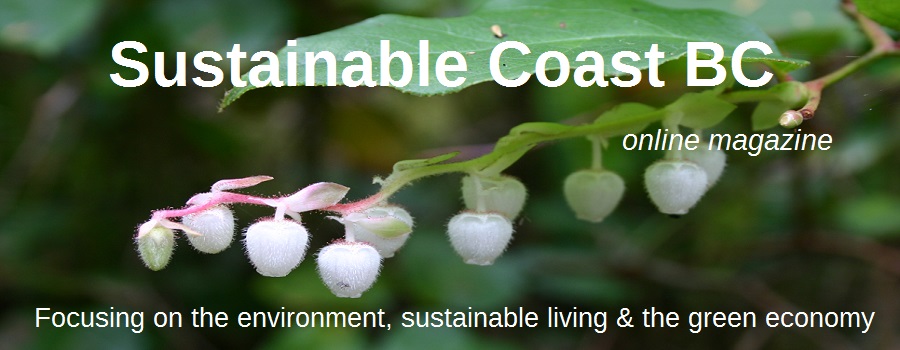News
A visually beautiful film, "Queen of the Sun" brought the story of the honey bee and the people who care for them home to the Sunshine Coast as local beekeepers told their stories and updated the audience on what is happening with our local bees following the film showing.
Members of the Sunshine Coast Beekeepers Association related their own stories of becoming beekeepers and what they are doing to increase honey production and protect the bees on the coast. Beekeepers Allan Cobbin, Lothar Hershfelder, Joanna Zilsel, Rob Haines and Harry Meier participated in the discussion. In addition, the beekeepers brought local honey, bee equipment and information to share with everyone.
The film dealt with what is being called "colony collapes disorder" and also mite infection of colonies. Beekeepers and scientists from around the globe relayed their stories and fears of mono culture and pesticides as causing the demise of the honeybees and other insects. Without a variety of crops, we are losing our honeybees and other insects from a lack of food for them. This in turn results in a lack of pollination of our human food crops.
Another huge problem is the use of pesticides. These pesticides are killing the beneficial insects as well as the problem ones. And their use in beekeeping to deter mites is harming the honeybees while the mites are growing ever more resistant to the "cure". A particular pesticide group, the neonicotinoids, is used in a powder to coat seeds. This pesticide in the powder inevitably ends up on nearby flowers where the bees pick it up while gathering pollen. It has already been banned in many European countries.
Allan Cobbin, a master beekeeper and owner of Sea Breeze Aparies in Roberts Creek, has bees in four locations on the coast and says he tries to keep to organic practices. He has been a beekeeper for over 40 years. He said that so far this year the bee colonies on the coast are doing okay. He says we have lost around 10% of the winter colonies here on the coast as compared to an average of 25% for BC this year. This is much better than last year where the beekeepers reported losing 75% to 100% of their hives.
Beekeeper Joanna Zilsel is in her third year of raising bees. She felt the film brought home the depth of the bee problem which is tied to mono culture and pesticide use. She encouraged people to buy local organic food and not use pesticides. She suggested that people should approach our local representatives to prohibit the sale of the chemicals. She said,
"The bees are stressed and we have to help them."photo by Betty Meier
Rob Haines has been a beekeeper for 25 years. He says he has moved from producing honey to helping bees reproduce and developing stronger stock. He sells queen bees for new colonies.
Harry Meier told the audience about the joys of having his bee colony on his deck and sharing the bees with his grandchildren. He also was pleased to announce that the SC Beekeepers Association will be working with the Botanical Society to bring bee colonies to their garden. Their collaboration will bring an educational component especially for kids to the gardens.
People were very interested in beekeeping and many questions to the panel were about what it takes to raise a colony of bees. It doesn't take a lot of room. Joanna told the audience that she lives on a small, standard sized lot in town and has three colonies. Lothar Hershfelder emphasized that keeping bees is a long-term commitment and that you can expect to invest around $400-500 to set up. Many of the beekeepers have electric fencing around their hives to discourage bears.
The sponsors of the Green Film Series, Sustainable Coast magazine and the Gibsons Green Team were sorry to have to turn away around 30 people. They are considering bringing another showing to the coast so everyone who wishes to see this special movie can do so.
